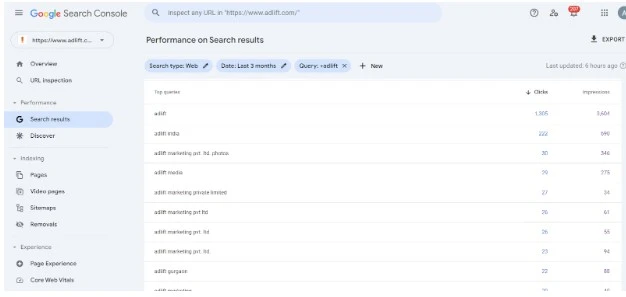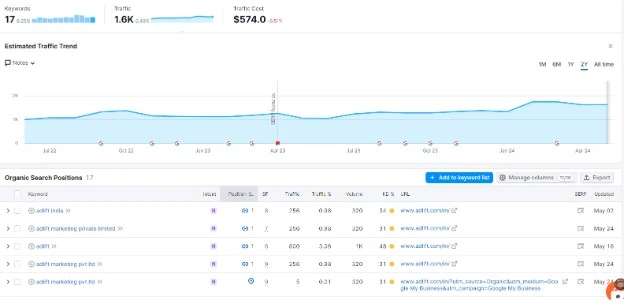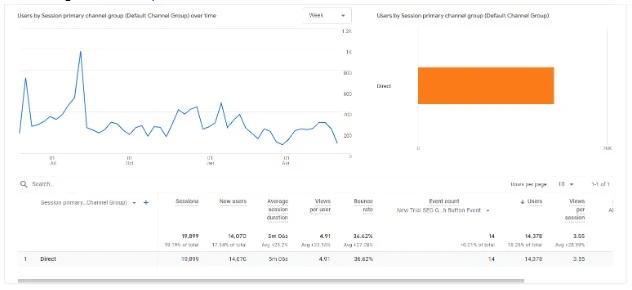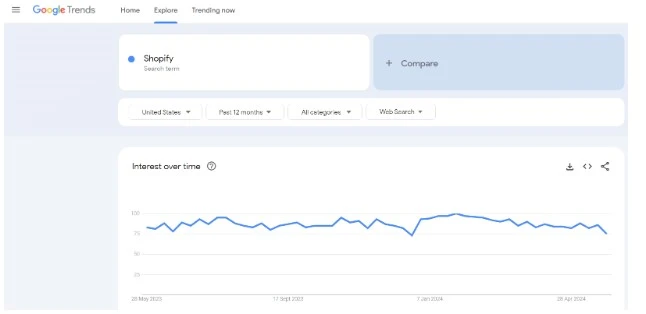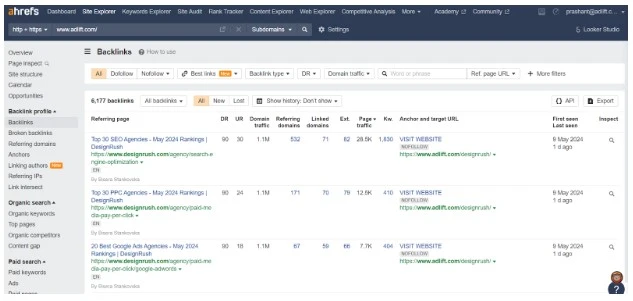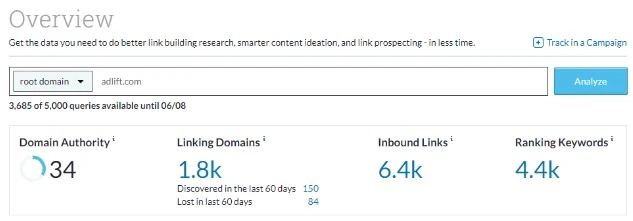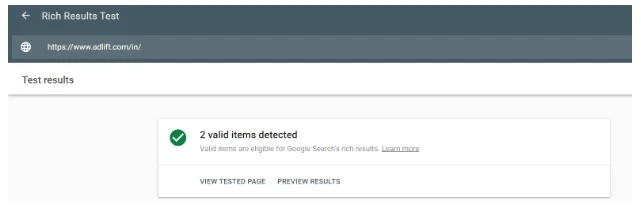Maximize your Brand Value Through Strategic SEO

Have you ever wondered why some brands are everywhere online? That’s the power of search engine optimization. Believe it or not, 68% of all online adventures start with a search engine like Google (BrightEdge). This makes SEO crucial for anyone wanting to boost their brand’s online visibility. Integrating SEO into your branding efforts increases your brand reach and amplifies the SEO impact on your brand, ensuring you’re seen by the right people at the right time.
We’ll discuss how SEO and traditional branding work together to create a dynamic online presence that attracts and retains customers. Are you ready to see how SEO and brand awareness can work for your business?
What We’ll Cover:
- Why SEO & Branding are Intertwined
- What is SEO for Brand Awareness
- Long-term Benefits of SEO Brand Awareness
- How to Create Brand Reach with SEO
Whether you’re beginning from scratch or refining your existing strategy, we’ll cover all you need to know about SEO for brand awareness and the overall SEO impact on the brand. Let’s get started!
What is SEO Branding?
SEO branding uses search engine results to drive brand visibility and awareness, capitalizing on the searches of people already looking for you. Essentially, it’s about ensuring your brand appears high in search results, so even if you only get a few clicks, more people see your brand name. This visibility can significantly change public perception and trust.
For example, when people search for “sustainable clothing” and see Wear PACT repeatedly in the results, it reinforces Wear PACT’s brand authority.
SEO brand awareness means your brand shows up whenever users search for relevant products, creating an ongoing presence that shapes public perception.
SEO for brand awareness attracts clicks and also high-intent users who are likely ready to purchase. When someone includes your brand name in a search, they’re probably close to buying. These users offer great conversion opportunities, so guiding them through the last stages of the sales funnel with a seamless experience is important.
Get
in Touch
Contact AdLift for a 360-degree marketing plan
The Synergy Between SEO and Branding
Branding is about the emotional connection you establish with your audience—how they feel when they see your logo or hear your name. Conversely, SEO is the behind-the-scenes tech that helps people find you in the first place. Imagine branding as building a beautiful store where everyone feels welcome and SEO as the roads that lead customers to it.
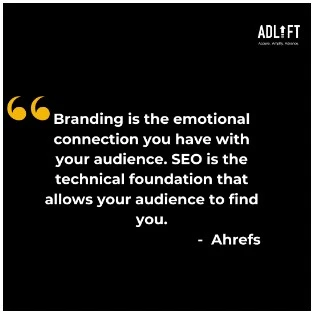
According to Ahrefs, “Branding is the emotional connection you have with your audience. SEO is the technical foundation that allows your audience to find you.” Without SEO, your branding efforts might not reach as many eyes or touch as many hearts. And without solid branding, the people who find you via SEO might not remember you for long.SEO branding has a significant impact on consumer behavior. A study by Search Engine Watch found that 75% of consumers judge a business’s credibility based on its website’s search ranking.
Authority and Trust
Imagine a potential customer in search of a product. They might explore different options and gather information multiple times before deciding. If your website keeps popping up in their search results, even if it’s not always the top result, it starts to stick in their mind. The more they see you, the more they trust you. This is the impact of brand awareness SEO.
For instance, when consumers search for “natural beauty products” and consistently find Kora Organics at the top, they are more likely to trust and choose Kora over lesser-known brands. This shows the direct SEO impact on brand reach and consumer trust.
Customer Retention
Known brands have a huge advantage—they get repeat clicks and loyal customers. When your brand consistently ranks well for related products and services, it becomes more recognizable and trustworthy. Think about Amazon. Every time you search for something and see Amazon in the results, you know a few things instantly:
- They have the product.
- It’s likely priced well.
- You can get it fast with Prime shipping.
- There are reviews to help you decide.
This constant presence is powerful. It drives traffic to Amazon because people trust what they know. Strong SEO branding means your brand becomes a trusted option for consumers.
Another example is Peloton. When people see Peloton in their search results for fitness equipment, they are reassured of quality and innovation. This constant visibility encourages repeat visits and purchases, highlighting how SEO and brand awareness boost engagement and conversions.
According to ProProfs, 52.3% of customers will join a loyalty program for brands they trust, and 39.4% will choose your product even if it’s pricier than the competition.
Repeat Clicks for Known Brands
Familiar brands enjoy a distinct online advantage—they consistently get more clicks and cultivate customer loyalty, thanks to robust SEO strategies. When your brand consistently appears at the top of search results, it’s more likely to be clicked on, reinforcing customer trust with each visit.
A 2022 study by Moz revealed that users are predominantly more inclined to click on the top search results, underscoring the significance of maintaining a strong SEO presence.
Research from Sistrix has shown that brand mentions in search results can elevate click-through rates by up to 34%.
This statistic highlights how powerful brand recognition can be; when searchers see a name they know, they’re more likely to engage with it over lesser-known competitors.
Take, for example, a global brand like Adidas. When searching for sports apparel, seeing Adidas repeatedly in search results reinforces its brand authority. Thanks to its strong SEO branding efforts, it also increases the possibility of repeat visits and purchases.
For businesses looking to increase their market presence, SEO can significantly increase brand awareness. This ensures that their brand stays top-of-mind for consumers, amplifying overall brand visibility and impact.
Why Should I Use Branded SEO?
Branded SEO offers diverse opportunities for businesses and can help achieve several key goals:
Driving Traffic Due to Brand Recognition
Many users will click on a page from a trusted brand before one they’ve never heard of. SEO branding uses this existing awareness to drive more traffic to your website.
Take Dunkin’, for example. When people search for coffee shops, they often choose Dunkin because it’s a well-known brand. This is where the SEO impact on brand reach becomes clear—your brand’s visibility directly influences user behavior and traffic.
Boosting Engagement
When you target branded search terms, you can create a web experience tailored specifically for those users. This gives them a better impression of your brand and drives engagement and conversions.
For instance, targeting search terms like “Apple iPhone” ensures that users looking for iPhones find exactly what they want. Effective SEO brand awareness strategies ensure that once users land on your site, they find it relevant and engaging.
Reducing Costs
SEO branding ties closely with other marketing efforts, like driving conversions and traffic. You can often build on these projects and leverage similar resources for different goals. This makes branded SEO cost-effective, reducing the need for continuous paid advertising.
For example, HubSpot has used its strong SEO presence to drive organic traffic, reducing its reliance on paid ads.
Improving Product Discoverability
Branded SEO attracts new visitors and makes it easier for customers to discover your entire range of products or services. When your brand consistently appears in search results, it increases the likelihood of users exploring more of what you offer.
For instance, consider Etsy. By consistently appearing in search results for various handmade and vintage items, Etsy helps users discover new products they might not have initially searched for. This improved discoverability can lead to increased sales and greater customer satisfaction.
Improving Local Presence
Branded SEO also plays a crucial role in strengthening your local presence. When your brand frequently appears in local search results, it makes it easier for nearby customers to find and choose your business over competitors.
For example, think of Whole Foods. Consistently showing up in local search results for organic groceries helps Whole Foods get local customers looking for healthy food options. This local presence drives foot traffic to their stores and builds a stronger connection with the community.
How to Create an SEO Branding Strategy
An effective SEO branding strategy requires a holistic approach to your user’s experience, focusing on three key elements:
Website Optimization
Building a search-friendly website that reflects your brand’s identity is the first step in SEO branding. Here are some tips:
- Functionality: Ensure your website is easy to use. For instance, Sony’s website is known for its intuitive design and straightforward navigation, which keeps users engaged and satisfied. A poor user experience can discourage visitors and signal to Google that your site isn’t the best match for search queries. Simple navigation and fast load times are needed for SEO impact.
- Crawling and Indexing: Optimize your site so search engines can crawl and index it efficiently. Use sitemaps and internal linking to help search engines understand your site structure. For example, Shopify uses clear sitemaps and internal links to enhance its SEO brand awareness and ensure its content is easily found.
- Mobile Optimization: Ensure your website looks great and functions well on mobile devices. With nearly 60% of internet traffic being received from mobile, a mobile-friendly site is crucial. Samsung’s website is an excellent example of a mobile-optimized site that enhances user experience and boosts brand reach.
Content Development
Creating content that your target audience finds relatable and supports your SEO goals is vital:
- Quality Over Quantity: Produce high-quality content that provides value to your audience. For example, Adobe offers in-depth articles and guides that are both informative and engaging. Keyword stuffing is outdated; keywords should be used naturally and focus on creating content for SEO and brand awareness.
- Branded Content: Tailor your content to branded searches. Use a style and tone that reflects your brand identity. For instance, Google’s blog consistently uses a tone that aligns with its innovative and forward-thinking brand, boosting brand awareness for SEO.
- Backlinks: Develop a backlink strategy. Backlinks from authoritative sites enhance your credibility. For example, when Forbes links to your content, it significantly boosts your SEO brand awareness and credibility. Prioritize backlinks from reputable websites related to your brand, product, or service.
Get
in Touch
Contact AdLift for a 360-degree marketing plan
Measuring Success
Tracking the effectiveness of your branded SEO campaigns is crucial:
- Branded Searches: Monitor how often people search for your brand and related terms. For instance, Google Search Console can show how well your SEO for brand awareness is performing by tracking branded search terms like “Adlift”.
Another useful tool is SEMrush, which provides insights into branded search volumes and trends over time.
- Direct Traffic: Measure direct traffic, which is users typing your URL directly into their browser. This indicates strong brand recall and recognition. For example, Disney benefits from high direct traffic due to its strong brand presence. Google Analytics is excellent for tracking direct traffic, while tools like Google Analytics offer more advanced insights and segmentation options.
- Google Trends: Use Google Trends to gauge interest in your brand over time. This helps track the long-term SEO impact on brand visibility. For example, tracking the trend for “Airbnb” can show how their SEO efforts boost brand awareness over time. Additionally, BuzzSumo can help track how often your brand is mentioned across various platforms, complementing insights from Google Trends.
- Backlink Profiles: Analyze who’s linking to your site and find opportunities to increase your brand presence. High-quality backlinks from sites like The New York Times enhance your SEO and brand awareness. Tools like Ahrefs can help you assess your backlink profile effectively.
Moz and Majestic are also great options for tracking and analyzing backlinks, providing comprehensive data on the quality and quantity of links to your site.
Advanced SEO Strategies for Brand Impact
To boost your brand’s online presence, consider these advanced SEO strategies:
- Schema Markup: Helps search engines know your content better and makes your site appear more attractive in search results, boosting SEO branding and visibility.
- Personalized Content: Use tools to create relevant, personalized content that speaks directly to your audience. This will improve your brand’s reach and engagement.
These strategies improve SEO for brand awareness. Your brand will stand out, increase visibility and trust, and ultimately boost its SEO impact.
Meet Your SEO Match with AdLift
Branded SEO is a great way to increase visibility and build your reputation with new and existing customers. It’s time to reassess your SEO strategies and focus on brand positioning. The right approach can ensure your business stands out in search results.
At AdLift, we specialize in SEO for brand awareness, helping companies elevate their online presence through tailored strategies. Whether you need comprehensive SEO services or support in a specific area, our experienced team can help. We offer services that improve your SEO brand awareness and drive lasting results.
Don’t miss the chance to improve your brand’s visibility and credibility. Partner with AdLift and experience SEO impact on your brand. Reach out to us today to begin building a more visible online presence.

